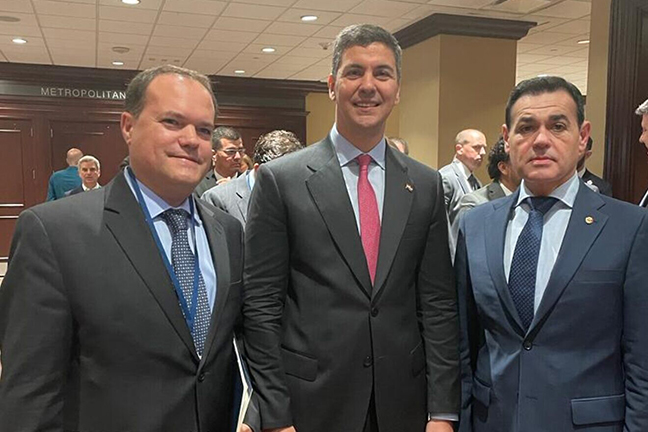Many Happy Returns: Investment in Israel Pays Off Huge for America

by Frank Musmar
(BESA) — The United States and Israel have a mutually beneficial relationship that provides America with a high return on its annual $3.8 billion investment. Between 1985, when the U.S. and Israel signed a Free Trade Agreement, and 2016, trade between the countries increased tenfold to $49 billion. The agreement was successful in three dimensions: politically, economically, and strategically. Israel now invests close to $24 billion in the U.S., nearly triple the figure of a decade earlier. Strategically, Israel is an American beachhead in the Middle East and the only regional ally on which Washington can rely.
Israel’s relationship with Saudi Arabia and other Arab Gulf states has improved dramatically in the recent past, irrespective of the Palestinian issue. Because of this new warmth, the U.S. does not have to choose between strategic cooperation with Jerusalem versus Riyadh. U.S.-Israel and U.S.-Arab relations complement one another, and that synergy works to Washington’s benefit.
On the economic front, critical components of leading American high-tech products are invented and designed in Israel, making the American companies that manufacture those products more competitive and profitable. Cisco, Intel, Motorola, Applied Materials and HP are just a few examples. The U.S.-Israeli economic and commercial relationship now encompasses IT, biotech, life sciences, health care solutions, energy, pharmaceuticals, food and beverages, defense industries, cyber-security, aviation, desalination, recycling, conservation, management and irrigation.
U.S. firms established two-thirds of the 300 foreign-invested research and development centers in Israel at Start-Up Nation, an independent non-profit that builds bridges to Israeli innovation firms. Israeli firms represent the second-largest source of foreign listings on the NASDAQ after China, and more than Indian, Japanese, and South Korean firms combined. According to an estimate by the U.S. Chamber of Commerce, Israel is home to more than 2,500 American firms employing some 72,000 Israelis.
The U.S. and Israel have three joint research and development foundations: the Binational Industrial Research and Development Foundation (BIRD), the Binational Science Foundation (BSF), and the Binational Agricultural Research and Development Foundation (BARD). Since its inception in 1977, the BIRD Foundation has granted $282 million to 813 projects that have directly and indirectly generated $8 billion in sales.
Israeli businesses invest heavily in the U.S. economy, with Israel placing among the top 20 suppliers of direct investment in the U.S. More than $150 billion was invested by Israeli companies in the U.S. between 2010 and 2015 with more than $25.1 billion in 2015 alone. As of this writing, over 30 U.S. states have signed bilateral agreements with Israel to foster closer ties in fields like business, technology, agriculture, homeland security and energy.
Strategically, the U.S. and Israel have developed deep strategic ties to confront common threats. This strategic relationship is a crucial pillar of America’s Middle East security framework, and the partnership is continually growing and expanding into new areas. Both nations gain from a strong strategic partnership, which draws in part upon Israel’s capabilities in designing advanced military, homeland security, counterterrorism and cyber-protection technologies that help the U.S. meet its growing security challenges. Israel’s military strength and central geostrategic location provide a strong deterrent to regional actors opposed to the U.S.
Israel is the place where U.S. special operations units trained before deployment in Iraq and Afghanistan, and Israeli armor plating technology protects U.S. soldiers. Israel is a cost-effective, battle-tested laboratory for U.S. defense industries, and it provides the U.S. with more intelligence than all the NATO countries put together. American battle tactics are formulated according to the Israeli playbook.
Israel is a strategic beachhead of the U.S. in the Middle East. It is in effect the largest U.S. aircraft carrier, yet it does not require a single American boot on the ground. Israel is the only stable, reliable, capable, democratic, and unconditional ally of the U.S., and it is willing to flex its muscles.
Dr. Frank Musmar is a financial and performance management specialist and a non-resident research associate at the Begin-Sadat Center for Strategic Studies.



